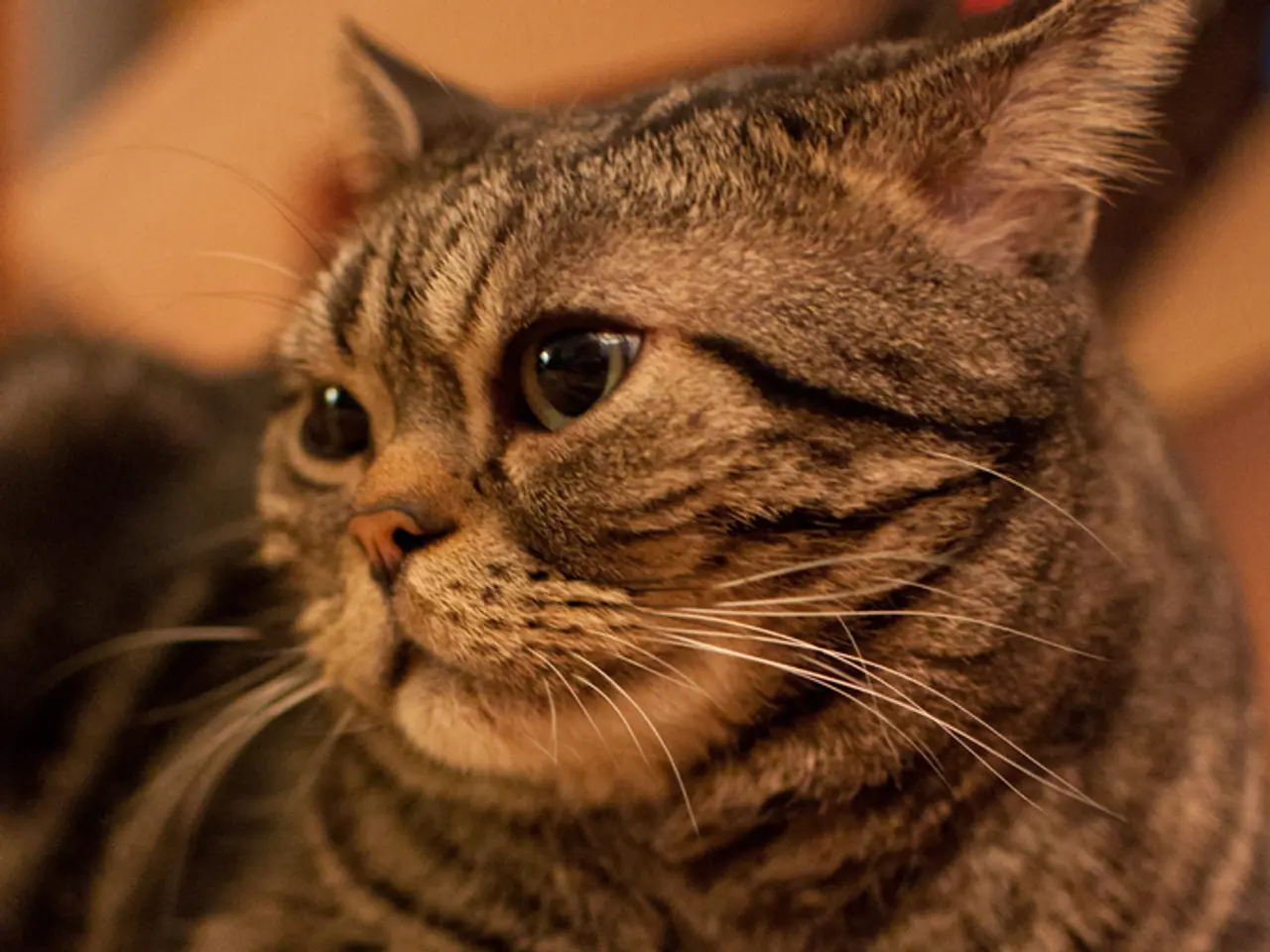Exploration of Feline Breathing Issues
Panting in cats is not a common occurrence, and when it does happen, it's often a sign of distress or illness. Here are some key facts about abnormal cat panting and what you should do if your feline friend starts panting excessively.
Recognising Abnormal Panting
Cats do not typically pant after playing, and brief panting immediately after intense play—especially in kittens or highly active cats—can be normal if it resolves quickly and the cat appears otherwise healthy. However, any persistent or extreme panting should prompt a veterinary examination to rule out serious health problems.
Persistent or heavy panting, lasting more than a few minutes, is usually abnormal and a sign of distress or illness. Other signs warranting urgent veterinary attention include labored or distressed breathing, blue or pale gums, coughing, wheezing, lethargy, collapse, or excessive drooling.
Causes of Abnormal Panting
Abnormal causes of cat panting include various medical conditions such as respiratory diseases like asthma, congestive heart failure, heartworm disease, anemia, trauma, neurologic disease, distended abdomen, severe pain, and more.
Heart Disease: Can cause difficulty breathing and panting as a symptom of poor heart function.
Respiratory Diseases: Such as asthma or infections that impair breathing can lead to panting.
Pain: Cats may pant if they are in significant discomfort.
Anemia: Reduced oxygen-carrying capacity can cause panting.
Hyperthyroidism: Increases metabolism and can cause respiratory distress and panting.
Heatstroke or Overheating: Though cats usually cool themselves through other means, extreme heat can cause panting to release heat.
Common Conditions Associated with Abnormal Panting
Feline Asthma: Affects 1-5% of all cats and is a condition in which a cat's body creates an allergic reaction to inhaled particles from the environment, causing constriction and narrowing of the airways in the lungs.
Congestive Heart Failure: Leads to fluid backup and accumulation in and around the lungs.
Respiratory Distress: A common reason for cats on an emergency basis.
Treatment and Management
Treatment for respiratory infections includes oxygen therapy, antibiotics, and humidifiers or steam therapy. Cats with asthma may vomit. Cat asthma can be controlled through inhaler therapy and bronchodilators.
Treatment for congestive heart failure in emergencies includes oxygen therapy, diuretics, medication to slow down the heart rate, aspirin to prevent blood clots, and other life-saving strategies.
Breed Susceptibility
Certain cat breeds are more susceptible to panting, such as Himalayans, Persians, Maine Coons, and long-haired breeds.
Anxiety and Panting
Anxiety in cats can cause normal feline panting but can become a source of abnormal panting if ongoing within the home or with prolonged travel.
In conclusion, panting in cats is usually a sign of something being amiss. If your cat starts panting abnormally, consult a veterinarian immediately, especially if the panting doesn't resolve quickly, is accompanied by coughing, difficulty breathing, and/or lethargy.
- In some cases, abnormal panting in cats might be indicative of underlying health issues related to fitness-and-exercise, such as feline asthma, which is caused by an allergic reaction to inhaled particles from the environment that narrows the airways in the lungs.
- The condition of heart-disease, particularly congestive heart failure, can also lead to panting in cats due to difficulty in breathing as a result of poor heart function.








